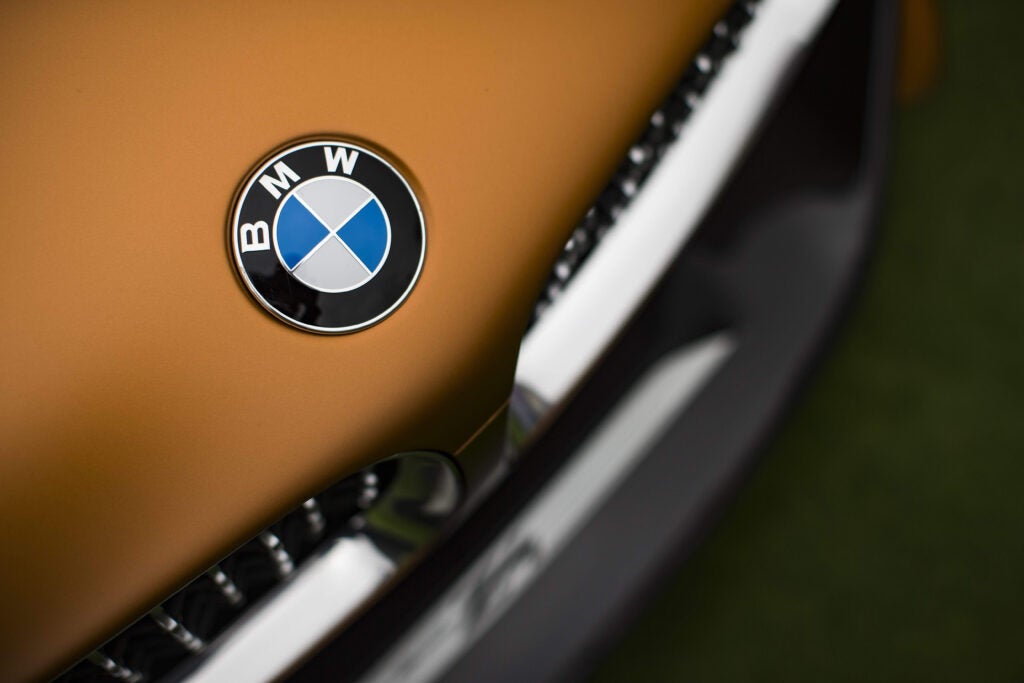
Car clubs are providing an easy, subscription-style alternative to car ownership, but does that reflect a changing attitude to car ownership as a whole? Chris Farnell reports
Car share is not a new concept. It has been around in a very small way since the 1950s and 60s. However, in the last decade, it has taken a move into the mainstream.
“Co Wheels was set up 13 years ago at the start of this growth,” says Richard Falconer, head of locations and commercial development at Co Wheels. “It has been steadily growing for many years, especially in more urban areas as the barriers to owning and using a car have increased – parking restrictions and costs, insurance costs, congestion and low emission zones and charges, the rising cost of buying and maintaining a car.”
However, the sector really took off since the Covid lockdown.
“People have realised having a depreciating asset sat on their drive doing nothing most of its life is not the smartest way to get access to a car,” Falconer points out. “Since 2018 car club membership has doubled – a 100% increase – which ties in with our experience at Co Wheels.”
Co Wheels is not the only business to move into this rapidly growing market segment. Volkswagen UK has an ongoing partnership with ZipCar, which has delivered the UK’s largest fleet of shared electric cars to London.
How well do you really know your competitors?
Access the most comprehensive Company Profiles on the market, powered by GlobalData. Save hours of research. Gain competitive edge.

Thank you!
Your download email will arrive shortly
Not ready to buy yet? Download a free sample
We are confident about the unique quality of our Company Profiles. However, we want you to make the most beneficial decision for your business, so we offer a free sample that you can download by submitting the below form
By GlobalDataFalconer says that the new market is made up of a combination of new drivers, and existing drivers reassessing car ownership.
“But the largest group, around half of our membership, is in the 25 to 45 age bracket and around 10 per cent are under 24,” Falconer says. “We have mainly established drivers giving up cars plus a regular flow of newer drivers joining the club. We also have many drivers joining us who have two or more cars or want to sell their second car and just use the club when they need an additional car.”
Falconer points to research that claims that, on average, one club vehicle can take 18.5 cars off the road.
“21% have given up at least one car, and 22% of members say they would have bought a car if they hadn’t joined a car club,” Falconer says.
Ownership alternatives
Could car clubs ever be a rival to more traditional avenues of car ownership?
“In the short term, I suspect not,” says Robert Murray, head of marketing at Dublin-based First Citizen Finance. “However, for those living in cities or indeed have accommodation where parking is limited, the car club model could certainly challenge the need for vehicle ownership.”
While car club type arrangements are on a sharp rise, the consensus is that mainstream car purchases, including Personal Contract Purchase (PCP) and leasing, will continue to be favourites because they meet the needs of the majority of drivers in the UK.
“However, car clubs are an interesting alternative to more traditional models if they’re brought to market in the right locations,” a spokesperson for Volkswagen Financial Services tells us. “For example, our Rent-a-Car platform, which saw huge levels of demand over Easter, helps answer customers’ mobility needs because whether it’s for a holiday, moving house or keeping businesses on the road, the platform can offer an excellent choice of vehicles, options and insurance cover for motorists.”
“But they are still a fairly niche option for most UK consumers as the reality for many people is they need an ‘always on’ solution to getting around,” says Kirk Franks, head of national sales at ALPHERA Financial Services. “Many people in the UK need ‘permanent’, ongoing access to a car because it’s their primary form of transport – used for all work and family commitments, leisure trips, holidays and weekends away.”
However, Falconer argues that car ownership models can bring their own sources of stress.
“Owning a car is a hassle,” Falconer explains. “First you have to find out what suits your needs, search for one in your price range, test drive it, negotiate a loan or leasing deal and arrange insurance. That’s just to get it in the first place.”
With car share, Falconer argues, drivers just find the nearest one that’s available, choosing a larger car or a van if that’s what they need.
“A survey shows around 20% of car club members say they can’t afford to own and run a car and they report savings on travel costs of up to £1,000 a year,” says Falconer. “There are increased costs with ownership. You not only have to sort finance or a lease, but if you buy it your biggest cost will be depreciation when you sell it again, plus insurance and garage bills, repairs and tyres.”
On top of that, car clubs can have a positive environmental impact – people who do not own cars use them less, relying on more sustainable forms of travel.
Falconer points out, “Almost a third of our fleet are electric cars which emit zero emissions and pollution at the tailpipe, half the fleet are hybrid petrol electrics and all of them meet the latest low emission standards – whereas the average UK car is on average around ten years old and much less efficient and more polluting.”
Changing models
Car clubs are one of a burgeoning selection of alternative ownership models the market is developing right now.
First Citizen Finance offers a product called ‘Simplicity’. “This is not a car club, rather a PCP-type offering,” says Murray. “It is a hire purchase agreement structured with a final payment at the end of the rental period. Customers are getting more comfortable with subscription models in general and this product can resemble that for car buyers.”
Volkswagen Financial Services is offering a dedicated EV product, Lease&Care, which bundles maintenance and optional mobility credits to access a rental car if required.
“The flexibility of this finance plan means all servicing and car costs are covered in one easy, single monthly payment and this product is available across Volkswagen and ŠKODA EV models,” a spokesperson tells us.
At the same time, there will continue to be space for more traditional models.
“There are always going to be people who like to own the asset, over effectively hiring it. We are definitely seeing a shift to accepting ‘cars as service’ but it is early days,” Murray says.
“We know from our own feedback that consumers find finance products, such as PCP or PCH [Personal Contract Hire] provide them with ongoing access to a vehicle at an affordable, fixed monthly cost,” says Franks. “They have the certainty of having the vehicle for a fixed amount of time, at a fixed monthly cost, with mutually agreed limits on mileage and agreed standards for the return condition of that vehicle.”
While flexibility is a watchword across the market, that flexibility comes at a cost.
“A common theme we hear from customer feedback is that while greater flexibility is always appealing, they don’t want to pay extra for it or compromise on the quality or age of the vehicle they’re driving,” Franks says.
“There is no question about it, subscription-like models are growing in popularity because people can budget for usage – and stop a subscription when it suits them with little or no fuss,” says Murray. “Technology advancements have made it easier than ever to jump on the bandwagon. However, there is also a future for car ownership.”
Karshare eyes UK expansion following £3m funding round






